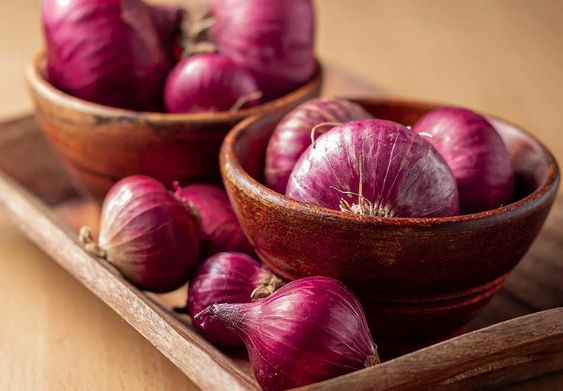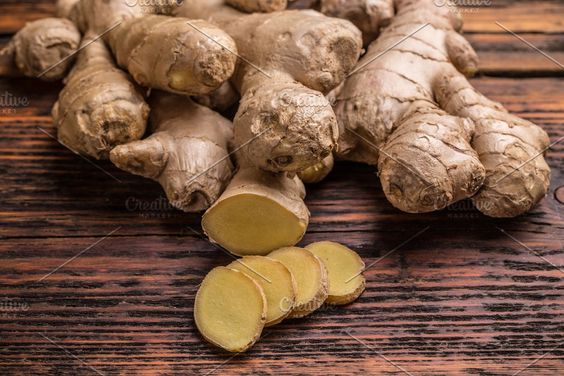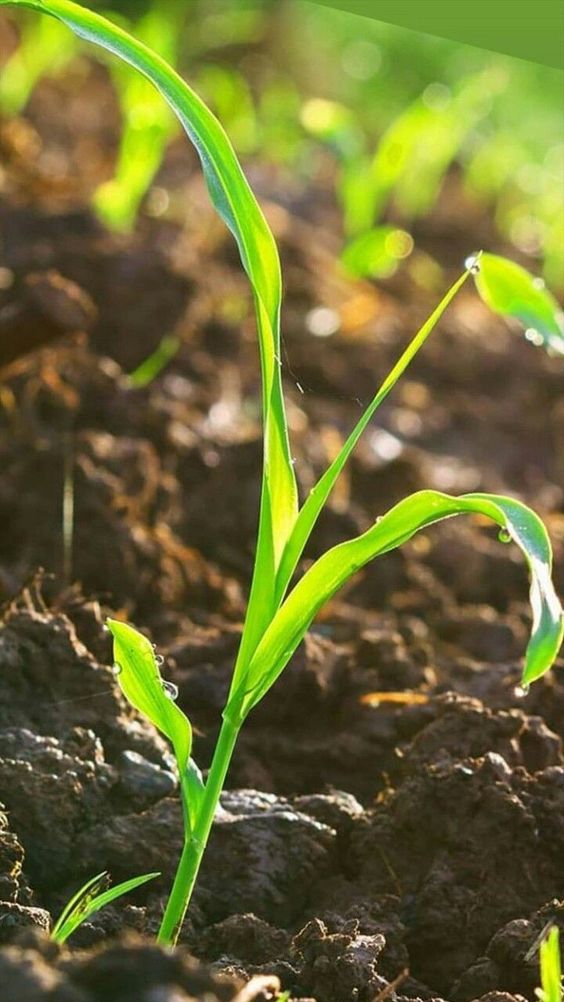Organic Onion Farming: Revolutionizing Agriculture with Smart Technologies
Organic Onion Farming,The integration of Smart Agriculture with traditional farming practices has revolutionized the agricultural sector, making it more efficient, sustainable, and productive. Organic onion farming, a vital component of global agriculture, can greatly benefit from the adoption of Smart Agriculture technologies. This comprehensive guide explores the application of Smart Agriculture in organic onion farming, detailing its benefits, objectives, methodologies, and advantages.
Organic onion farming involves growing onions without the use of synthetic fertilizers, pesticides, or genetically modified organisms (GMOs). This method prioritizes natural growth processes and sustainability, ensuring the production of healthy, high-quality onions. Organic farming methods enhance soil fertility, protect biodiversity, and contribute to the overall health of ecosystems.
Smart Agriculture, also known as precision agriculture, utilizes advanced technologies to enhance farming efficiency and productivity. By integrating Internet of Things (IoT) devices, sensors, GPS, data analytics, and machine learning, Smart Agriculture provides farmers with real-time data and insights. These technologies enable better decision-making, optimized resource use, and improved crop management.
Contents
- 1 Benefits of Smart Agriculture in Organic Onion Farming
- 2 Objectives of Integrating Smart Agriculture with Organic Onion Farming
- 3 Methodologies and Technologies in Smart Agriculture for Organic Onion Farming
- 4 Explanation of Smart Agriculture Processes in Organic Onion Farming
- 5 Usefulness and Advantages of Smart Agriculture in Organic Onion Farming
- 6 Future Prospects of Smart Agriculture in Organic Onion Farming
Benefits of Smart Agriculture in Organic Onion Farming
1. Precision Irrigation
Precision irrigation systems use sensors and IoT devices to monitor soil moisture levels in real-time. This ensures that onions receive the right amount of water at the right time, reducing water waste and preventing over-irrigation. By optimizing water use, farmers can maintain healthy soil and improve crop yields.
2. Pest and Disease Management
Smart Agriculture technologies enable early detection and management of pests and diseases. Sensors and drones can monitor onion fields, identifying signs of infestation or infection. This allows farmers to take timely action, applying organic treatments and minimizing crop loss.
3. Soil Health Monitoring
Soil sensors provide valuable data on soil pH, nutrient levels, and temperature. This information helps farmers make informed decisions about soil amendments and crop rotation, ensuring optimal soil health. Healthy soil is crucial for the growth of robust, disease-resistant onions.
4. Yield Prediction and Management
Machine learning algorithms analyze historical and real-time data to predict onion yields accurately. This information aids farmers in planning harvests, optimizing storage, and meeting market demand. Predictive analytics also help in managing supply chains more efficiently.
5. Resource Optimization
Smart Agriculture promotes the efficient use of resources such as water, fertilizers, and energy. By precisely monitoring and managing these inputs, farmers can reduce costs and environmental impact. This sustainable approach aligns with the principles of organic farming.
Objectives of Integrating Smart Agriculture with Organic Onion Farming
1. Enhancing Productivity
The primary objective is to increase onion yield and quality through precise farming practices. Smart Agriculture helps in maximizing productivity while maintaining the organic integrity of the produce.
2. Sustainable Farming
Adopting Smart Agriculture techniques promotes sustainability by reducing resource consumption, minimizing waste, and preserving natural ecosystems. This aligns with the core principles of organic farming.
3. Cost Efficiency
By optimizing resource use and improving crop management, Smart Agriculture reduces operational costs. This makes organic onion farming more economically viable for farmers.
4. Market Competitiveness
High-quality, organically grown onions with consistent yields can command better prices in the market. Smart Agriculture helps farmers meet market demand and stay competitive.
Methodologies and Technologies in Smart Agriculture for Organic Onion Farming
1. IoT and Sensor Technology
IoT devices and sensors are integral to Smart Agriculture. Soil sensors, moisture sensors, and weather stations collect real-time data, providing farmers with insights into field conditions. This data is crucial for making informed decisions about irrigation, fertilization, and pest control.
2. Drones and Aerial Imaging
Drones equipped with multispectral cameras capture high-resolution images of onion fields. These images help in monitoring plant health, detecting pest infestations, and assessing crop growth. Aerial imaging provides a comprehensive view of the farm, enabling precise interventions.
3. Data Analytics and Machine Learning
Data analytics tools process the vast amounts of data collected from sensors and drones. Machine learning algorithms analyze this data to identify patterns, predict yields, and recommend optimal farming practices. This technology enables proactive decision-making.
4. GPS and GIS Technology
Global Positioning System (GPS) and Geographic Information System (GIS) technology enable precise mapping and monitoring of onion fields. Farmers can use GPS-guided machinery for planting, fertilizing, and harvesting, ensuring accuracy and efficiency.
5. Automated Systems
Automation in irrigation, fertilization, and pest control systems enhances efficiency and reduces manual labor. Automated systems can be programmed to respond to real-time data, ensuring timely and accurate interventions.
Explanation of Smart Agriculture Processes in Organic Onion Farming
1. Soil Preparation and Planting
Before planting, soil sensors measure soil pH, moisture, and nutrient levels. Based on this data, farmers can amend the soil with organic fertilizers and compost. GPS-guided machinery ensures precise planting, optimizing plant spacing and depth.
2. Irrigation Management
Smart irrigation systems use soil moisture sensors to determine the exact water needs of the onion crop. These systems automate irrigation schedules, providing water only when necessary. This conserves water and prevents waterlogging.
3. Fertilization and Nutrient Management
Soil sensors also monitor nutrient levels, guiding the application of organic fertilizers. Farmers can use precision fertilization techniques, ensuring that nutrients are delivered directly to the root zone. This enhances nutrient uptake and reduces wastage.
4. Pest and Disease Control
Drones and sensors continuously monitor the field for signs of pests and diseases. When an issue is detected, farmers can apply organic pesticides or biological controls in targeted areas. Early intervention prevents the spread of infestations and minimizes crop loss.
5. Harvesting and Yield Management
Machine learning algorithms predict the optimal harvest time based on plant growth data. GPS-guided machinery can automate harvesting, ensuring that onions are collected at the right stage of maturity. Yield data helps in planning storage and distribution.
Usefulness and Advantages of Smart Agriculture in Organic Onion Farming
1. Improved Crop Quality
Smart Agriculture ensures that onions receive optimal care, resulting in higher quality produce. Consistent monitoring and precise interventions enhance the size, flavor, and nutritional value of the onions.
2. Increased Yield
By optimizing resource use and crop management, Smart Agriculture increases onion yield. Higher yields translate to better profitability for farmers.
3. Environmental Sustainability
Smart Agriculture promotes sustainable farming practices by reducing resource consumption and minimizing environmental impact. This aligns with the goals of organic farming to protect and preserve natural ecosystems.
4. Economic Viability
The efficiency gains from Smart Agriculture reduce operational costs, making organic onion farming more economically viable. Farmers can achieve higher profits while maintaining sustainable practices.
5. Enhanced Decision-Making
Access to real-time data and predictive analytics empowers farmers to make informed decisions. This proactive approach improves overall farm management and reduces risks.
Future Prospects of Smart Agriculture in Organic Onion Farming
The future of organic onion farming lies in the continued integration of advanced technologies. Innovations in AI, IoT, and automation will further enhance precision and efficiency. Research and development in organic farming practices will also contribute to more sustainable and productive methods. The collaboration between technology providers, agricultural experts, and farmers will drive the evolution of Smart Agriculture.
The integration of Smart Agriculture with organic onion farming represents a significant advancement in the agricultural sector. By leveraging IoT devices, sensors, data analytics, and machine learning, farmers can achieve higher productivity, sustainability, and profitability. The benefits of Smart Agriculture extend beyond individual farms, contributing to global food security and environmental conservation. As technology continues to evolve, the future of organic onion farming looks promising, with the potential for even greater innovations and achievements.




